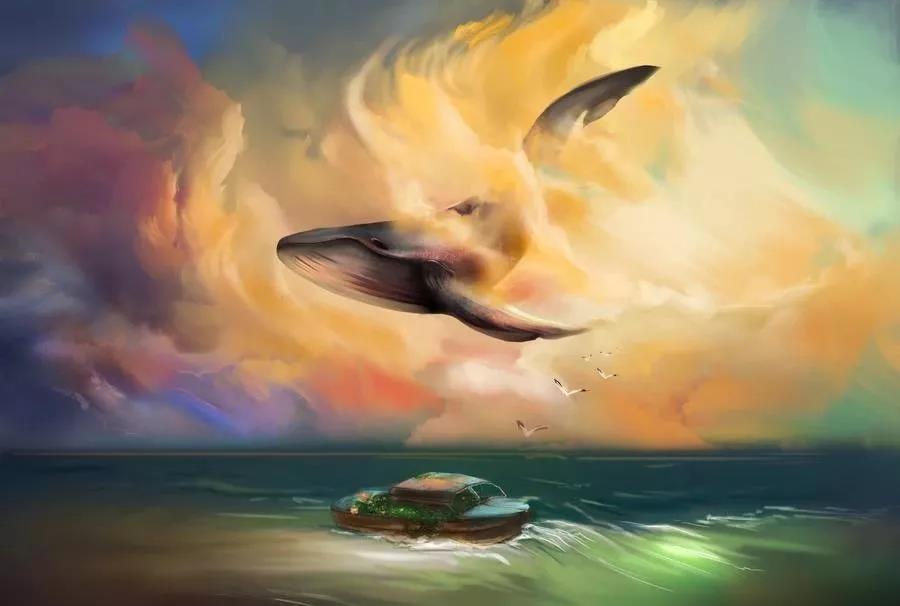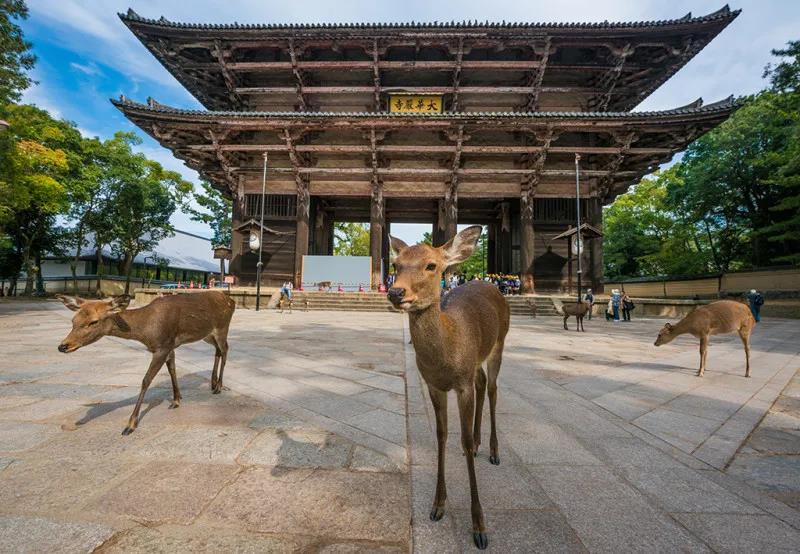
为何养虾会加剧全球变暖 | 外刊精读
本期精读文章来自The Economist一篇关于人造虾肉的文章How artificial shrimps could change the world
长久以来,牛肉一直是环保主义者抨击的对象,因为养牛会导致温室气体排放增多。但鲜为人知的一点是,养虾对环境的破坏更大,因为养虾场会占用珍贵的红树林沼泽地。同时,捕虾业中也存在着人口贩卖和童工问题。为了解决这些问题,新加坡一家公司推出了人造虾肉技术,但目前人造虾肉价格还太高,未来有望不断降下来。
小标题brain v prawn来自一个常见的英文说法brain and brawn(脑力和体力),prawn是指“大虾”,这一改编非常切合题意。类似这样的表达在文中还有不少,我在下面做了详细解析:
开头段主要介绍了养虾场带来的环境问题。
For a long time, beef has been a target of environmentalists because of cattle farming’s contribution to global warming.
长期以来,牛肉一直是环保主义者攻击的对象,因为养牛业会加剧全球变暖。
XX is a target of somebody是一个固定搭配,意为“XX是某人攻击的目标”,比如川普经常被媒体挖苦,我们可以说:
Donald Trump has been a favorite target of the US media since he entered the political scene.
But what about humble shrimp and prawns? They may seem, well,shrimpy when compared with cows, but it turns out the tasty decapods are just as big an environmental problem.
但对于默默无闻的大虾和小虾呢?和牛相比,它们看上去好像微不足道,但事实证明这些美味的十足目动物同样会带来严重的环境问题。
shrimpy是作者造的一个词,虾和牛相比体型显得非常小,因此shrimpy也可以引申为“微不足道”。
shrimp(小虾)和prawn(大虾)这两种动物非常容易混淆,它们的区别是shrimp有两对爪子,而prawn有三对。
The issue is not so much their life cycle: shrimp (as UN statisticians refer to all commonly eaten species collectively) do not belch planet-cooking methane the way cows do.
问题并不在于它们的生命周期:虾(联合国统计学家对所有人们经常食用的虾的统称)不像牛那样释放出能使地球升温的甲烷。
planet-cooking(让整个星球沸腾)是一个夸张的说法,这里用来强调牛释放的甲烷产生的温室效应之大。
But shrimp farms tend to occupy coastal land that used to be covered in mangroves. Draining mangrove swamps to make way for aquaculture is even more harmful to the atmosphere than felling rainforest to provide pasture for cattle.
但是虾类养殖场往往会占据沿海土地,这些土地之前被红树林覆盖。排干红树林沼泽以供水产养殖之用,这种做法与砍伐雨林为牛提供牧场相比,对大气的危害更大。
make way for something意思是“让位给(更新、更好的事物)”,这一表达在建筑和环境话题中经常出现,比如:Several houses were demolished to make way for a new road.
Eating a surf-and-turf dinner of prawn cocktail and steak, the study warned, can be more polluting than driving across America in a petrol-fuelled car.
该研究提醒说,吃一顿包含鸡尾酒虾和牛排的海陆大餐比开汽油车横穿美国会造成更多污染。
surf and turf是一个固定搭配,surf原始含义是“浪花”,turf原始含义是“草皮”,surf and turf引申为“海陆大餐”。
第二段介绍了捕虾产业存在的问题。
Eating wild shrimp is not much better: catches are declining around the world as a result of overfishing. Trawlers can pull as much as 20kg of by-catch from the sea for every kilo of shrimp.
即使吃野生的虾也不好:由于过度捕捞,全世界的虾捕捞量都在下降。拖网渔船每捕捞一公斤虾可从海上拖出多达20公斤的副渔获物。
by-catch是指与主要捕捞对象一起捕获的其他种类的鱼。
And reports abound of the appalling treatment of workers on shrimp-fishing vessels, including human-trafficking and child labour.
关于捕虾船上工人遭到非人待遇(包括人口贩卖和童工)的报道多不胜数。
reports abound of the appalling treatment of workers on shrimp-fishing vessels 相当于 reports of the appalling treatment of workers on shrimp-fishing vessels abound,这里将abound提前是为了对其进行强调,说明这样的报道有很多。
第三段介绍了养虾业存在的一系列问题。
Most of the world’s shrimp and prawns come from Asia. The continent accounts for 85% of the farmed sort and 74% of the wild catch.
世界上大多数小虾和大虾都来自亚洲。亚洲出产了85%的养殖虾以及74%的野生捕捞虾。
the farmed sort其中sort用来指代前面提到的shrimp and prawns,这样可以避免用词重复。
But the industry is controversial, not just because of its part in global warming. Razing mangroves also leaves coastal regions vulnerable to flooding.
但这一行业饱受争议,不仅仅是因为它会促进全球变暖。夷平红树林还让沿海地区容易遭受洪灾威胁。
Many shrimp farms are unsanitary; ponds often have to be abandoned after a few years because of problems with disease and pollution.
许多养虾场不卫生。由于疾病和污染问题,养虾池在几年后常常不得不被废弃。
第四段介绍了新加坡一家公司推出的人造虾肉。
All this has given one Singaporean company a brain wave.
养虾业面临的这些问题给了一家新加坡公司灵感。
brain wave字面意思是“脑电波”(brain wave也可以写成brainwave),这里引申为“灵感,好主意”。比如:In 1980 she had a brainwave that changed her life.
“Farmed shrimps are often bred in overcrowded conditions and literally swimming in sewage water. We want to disrupt that—to empower farmers with technology that is cleaner and more efficient,” says Sandhya Sriram, one of the founders of Shiok Meats.
“养殖虾通常是在拥挤的环境下饲养,它们实际上是在污水中游动。我们希望打破这种局面,使农民拥有更清洁、更高效的技术,” Shiok Meats的创始人之一桑迪亚·斯里拉姆说。
The firm aims to grow artificial shrimp, much as some Western firms are seeking to create beef without cows. The process involves propagating shrimp cells in a nutrient-rich solution.
该公司的目标是培育人造虾肉,就像一些西方公司正在尝试不通过牛来生产牛肉一样。培育环节包括在营养丰富的溶液中培育虾细胞。
solution在这里是一词多义,意思是“溶液”(a liquid in which a solid or gas has been mixed)
Ms Sriram likens it to a brewery, disdaining the phrase “lab-grown”. Since prawn-meat has a simpler structure than beef, it should be easier to replicate in this way.
斯里拉姆女士将这一过程比作啤酒厂(酿酒),她不喜欢“实验室培养”一词。由于虾肉的结构比牛肉要简单,以这种方式培育虾肉应该会容易一点。
Eventually it plans to grow curved “whole” shrimp—without the head and shell, that is.
这家公司最终计划培育“完整的”弯曲虾仁——也就是说,没有头和壳的虾。
that is相当于that is to say,用于对前面提到的信息进行补充说明。
结尾段介绍了斯里拉姆女士对人造虾前景的展望。
The hitch is that producing shrimp in this way currently costs $5,000 a kilo. Shiok Meats thinks it can bring the price down dramatically by using less rarefied ingredients in its growing solution.
目前存在的问题是以这种方式生产的虾肉目前每公斤成本为5000美元。Shiok Meats认为,通过在虾肉培养液中使用便宜一点的原料,公司可以大幅降低虾肉价格。
hitch在这里的含义是“问题,故障”(a temporary difficulty which causes a short delay),比如:Due to a slight technical hitch the concert will be starting half an hour late.
People want to know more about where their food comes from and how it is harvested, argues Ms Sriram. “Cell-based technology is one of the ways to provide that accountability.” And even ordinary shrimp, whether farmed or fished, come at a heady price.
斯里拉姆女士认为,人们希望更多了解食物的来源和它们的获取方式。“基于细胞培养的技术是提供这种责任感的方法之一。” 即使是普通虾(无论是养殖还是野外捕获的),其获取的代价都太高。
something comes at a XX price是一个固定搭配,意思是“以XX的代价获得某事物”,比如我们可以说:
The country’s economic growth comes at a high price. Over the past two decades it has lost a third of its rainforest.
最后一句的come at a heady price是一语双关,上文讲到目前人造虾肉价格还太高,作者笔锋一转提到即使是普通虾价格也不便宜,这种不便宜不仅体现在价格上,还体现在养虾和捕虾对自然环境造成的破坏上。





